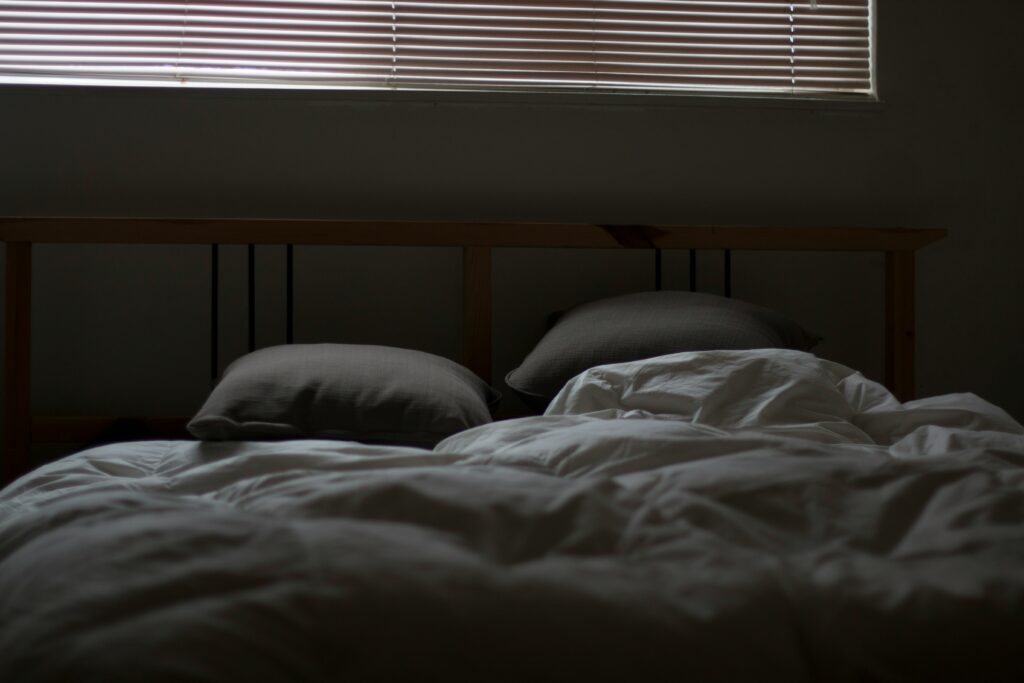How to Drift Off Naturally: Your Guide to Sleep with Sweet Dreams Without Pills
Feeling utterly drained, yet staring at the ceiling as the hours tick by? You’re not alone. In our fast-paced world, many of us find ourselves caught in a frustrating cycle of stress and sleepless nights. The exhaustion is real, the mental fog palpable, and the dream of a truly restful night can feel like a distant fantasy. But what if I told you that the path to peaceful slumber doesn’t have to involve reaching for a pill bottle?
This article is your compassionate companion on a journey to reclaim your nights. We’re here to offer concrete, actionable strategies that empower you to improve your sleep naturally. By the time you finish reading, you’ll have a toolkit of practical, tested methods to calm your mind and body, paving the way for the deep, restorative sleep you deserve. Imagine waking up feeling refreshed, energized, and ready to tackle your day – that’s the immediate benefit waiting for you. Let’s dive in and discover how you can finally say goodbye to sleepless nights and hello to blissful rest.

Unpacking the Sleep Puzzle: Understanding Insomnia’s Roots
Before we jump into solutions, it’s incredibly helpful to understand why sleep sometimes feels so elusive. Insomnia isn’t just about not sleeping; it’s a complex interplay of physical, mental, and environmental factors. Recognizing these triggers is the first step toward effective change.
The Modern-Day Culprits: Stress, Screens, and Schedules
Life today can feel like a perpetual juggling act. Work deadlines, family commitments, and an endless stream of information from our devices can keep our minds buzzing long after we’d like them to quiet down. This constant stimulation, often coupled with irregular bedtime routines, throws our body’s natural sleep-wake cycle (our circadian rhythm) completely out of whack. Think of it like this: your body thrives on predictability, and when you constantly shift your sleep times or expose yourself to bright screens late at night, you’re essentially telling your internal clock, “Surprise! It’s still daytime!”
When Your Mind Won’t Quit: The Anxious Loop
For many, insomnia is less about physical discomfort and more about a racing mind. Anxiety, worries about the future, or replaying past events can create a relentless mental loop that actively prevents sleep. It’s like your brain has decided to hold an urgent board meeting just as you’re trying to wind down. This mental chatter elevates stress hormones, making relaxation almost impossible. If this sounds familiar, know that you’re experiencing a common challenge, and we’ll explore gentle ways to quiet that busy mind.
Cultivating Your Sleep Sanctuary: Mastering Sleep Hygiene
Think of your bedroom as your personal sleep haven, a place dedicated solely to rest and rejuvenation. Sleep hygiene refers to the habits and environment that contribute to healthy sleep. It’s about setting the stage for success!
Crafting the Ideal Environment: Dark, Cool, and Quiet
Your bedroom’s ambiance plays a huge role in signaling to your body that it’s time to power down. Aim for a cave-like experience:
- Darkness is Key: Even tiny pinpricks of light can disrupt melatonin production, the hormone that tells your body it’s sleepy. Invest in blackout curtains, use an eye mask, or simply ensure all glowing electronics are turned off or covered.
- Keep it Cool: Experts suggest an optimal sleep temperature between 18-20°C (65-68°F). A cooler room helps your body’s core temperature drop, which is a natural part of the sleep process.
- Silence is Golden (Mostly): Minimize noise pollution. This might mean earplugs, a white noise machine, or even a fan to create a consistent, soothing background hum that masks sudden sounds.
The Power of a Consistent Schedule: Your Body’s Internal Clock
Your body loves routine! Going to bed and waking up at roughly the same time every day, even on weekends, is one of the most powerful steps you can take. This consistency reinforces your circadian rhythm, making it easier to fall asleep and wake up naturally. Imagine Mark, who struggled with erratic sleep. He decided to commit to a strict 10 PM bedtime and 6 AM wake-up time. For the first few days, it was tough, but within a week, his body started anticipating sleep, and he found himself feeling drowsy right on schedule. It’s all about training your body.
Saying Goodbye to Stimulants: What to Avoid Before Bed
This one might sting a little for coffee lovers! Caffeine and alcohol are notorious sleep disruptors. While alcohol might initially make you feel drowsy, it fragments your sleep later in the night, leading to a less restorative experience. Nicotine is also a stimulant. Aim to cut off caffeine intake at least 6-8 hours before bed and alcohol 3-4 hours prior. Even heavy or spicy meals too close to bedtime can cause digestive discomfort, keeping you awake. A light, easy-to-digest snack, like a banana or a handful of almonds, is a much better choice if hunger strikes.
Your Gentle Wind-Down: Establishing a Bedtime Routine
A consistent bedtime routine signals to your brain that it’s time to shift from “go” mode to “slow” mode. This hour or so before bed is your personal decompression chamber.
The Digital Sunset: Unplugging for Peace
Blue light emitted from phones, tablets, and computers suppresses melatonin production and keeps your brain alert. Make a commitment to disconnect from screens at least an hour before you plan to sleep. Instead of scrolling, try one of these calming activities:
- Read a physical book: Lose yourself in a story that’s relaxing, not thrilling.
- Listen to soothing music or a podcast: Choose something gentle and instrumental, or a calming narrative.
- Journal your thoughts: If your mind is buzzing with tomorrow’s to-do list or lingering worries, jot them down in a notebook. This simple act of transferring thoughts from your head to paper can be incredibly freeing. It’s like a mental decluttering, preparing your mind for rest.
The Art of Relaxation: Calming Your Mind and Body
Incorporating relaxation techniques into your routine can dramatically improve your ability to fall asleep. These aren’t just feel-good activities; they actively engage your parasympathetic nervous system, the body’s “rest and digest” system.
- Warm Bath or Shower: A warm bath about 90 minutes before bed can help your body temperature rise and then cool down, which mimics a natural sleep-inducing process. Add some lavender essential oil for an extra touch of calm.
- Gentle Stretching or Yoga: Light stretches can release physical tension. Avoid vigorous exercise, but a few minutes of gentle, restorative yoga poses can be wonderfully relaxing.
- Deep Breathing Exercises: Simple breathing techniques, like the 4-7-8 method (inhale for 4 counts, hold for 7, exhale for 8), can slow your heart rate and calm your nervous system.
- Mindfulness or Meditation: Even 5-10 minutes of guided meditation can help you detach from daily worries and focus on the present moment. There are many free apps and videos available.

Beyond the Bedroom: Lifestyle Adjustments for Better Sleep
Good sleep isn’t just about what happens in the bedroom. Your daily habits, including how you manage your finances and stress, can profoundly impact your nightly rest.
The Stress-Sleep Cycle: Breaking Free
Chronic stress is a major culprit behind sleepless nights. When we’re stressed, our bodies release cortisol, a hormone that keeps us alert. Learning to manage daily stressors is crucial for improving sleep. This is where a bit of simple budgeting can surprisingly come into play. When your finances feel out of control, it’s a huge source of stress. Getting a clear picture of your income and expenses, creating a realistic budget, and setting financial goals can significantly reduce financial anxiety, which in turn, can help quiet your mind at night. Think of it as investing in your peace of mind, one carefully planned penny at a time!
Movement and Light: Your Daily Doses of Nature
Regular physical activity is a fantastic natural sleep aid, as it helps you feel genuinely tired by bedtime. Aim for at least 30 minutes of moderate exercise most days of the week. However, time it wisely: avoid intense workouts too close to bedtime, as they can be stimulating. Early morning or afternoon is ideal.
Equally important is exposure to natural light, especially in the morning. Getting outside shortly after waking helps regulate your circadian rhythm, telling your body it’s daytime and promoting alertness, which then naturally leads to sleepiness come evening.
Conclusion: Embrace Your Journey to Restful Nights
Phew! We’ve covered a lot, haven’t we? From transforming your bedroom into a serene sanctuary to implementing a calming bedtime routine and even tackling stress through something as practical as simple budgeting, you now have a treasure trove of actionable strategies to improve your sleep naturally.
Remember, the journey to consistent, restorative sleep is a marathon, not a sprint. Don’t feel overwhelmed by trying to implement everything at once. Pick just one strategy that resonated with you today – perhaps setting a consistent wake-up time, or committing to unplugging from screens an hour before bed. Even small, consistent changes accumulate into significant results over time.
Your well-being is worth this investment. You deserve to wake up feeling vibrant and ready to embrace each day. It’s time to take control of your sleep and rediscover the immense benefits of a truly restful night. You’ve got this!
Frequently Asked Questions (FAQ)
Q: How do I stop feeling overwhelmed all the time?
A: To stop feeling overwhelmed, break down large tasks into smaller, manageable steps, prioritize your responsibilities using techniques like the Eisenhower Matrix, and set realistic boundaries with your time and energy. Practicing mindfulness and deep breathing can also help calm your nervous system in moments of stress.
Q: What are quick ways to destress before bed?
A: Quick ways to destress before bed include listening to calming music, engaging in 5-10 minutes of guided meditation or deep breathing, journaling your thoughts, or taking a warm bath or shower. Avoid stimulating activities like intense workouts or screen time.
Q: How can I simplify my daily routine to improve sleep?
A: To simplify your daily routine for better sleep, focus on consistency. Establish a regular wake-up and bedtime, create a predictable wind-down routine for the evening, and consider delegating or automating small tasks (like meal prepping or bill payments) to reduce mental load before bed.

